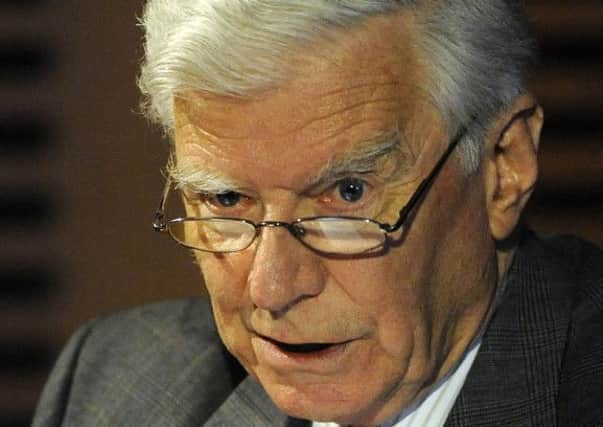Old ‘Merk’ the currency for a new Scotland


The former Scotland Office chief economist Professor Gavin McCrone will also claim that firms in Scotland’s financial sector would consider moving out of Scotland after independence.
In a paper to be considered by Holyrood’s finance committee on Wednesday, McCrone says his personal view is that an independent Scotland could try to follow the example of Ireland when it separated from the rest of the UK in 1922.
Advertisement
Hide AdAdvertisement
Hide AdThat scenario would see an independent Scotland having a “monetary union” with the rest of the UK, but initially without its own Central Bank.
With the passage of time, however, McCrone argues that Scotland would find it necessary to set up its own central bank, capable of issuing its own currency.
“This could be the restoration of the pre-1707 pound Scots, or indeed the Merk, and it could be pegged against Sterling initially on a one-to-one basis as Ireland’s currency was,” McCrone says.
A Merk was a unit of currency in old Scottish money that circulated before the 1707 Act of Union. McCrone’s suggestion is contrary to the Scottish Government’s plans to share Sterling through a formal currency union with the rest of the UK. Under the plans, the Bank of England would retain control over monetary policy and there would be restrictions on an independent Scotland’s fiscal policy.
Establishing a new Scottish currency would allow the alteration of exchange rates and give a future Scottish Government the power to vary monetary and fiscal policy.
According to McCrone, there would also be disadvantages.
“The disadvantage of this policy would be that it could impose transaction costs on companies trading across the Border, introduce risks to mortgages and pensions that were cross-border and, even more serious, cause some of the companies that make up Scotland’s large financial sector with over 100,000 jobs to consider whether they should move out of Scotland to where the bulk of their customers are,” he says.
McCrone is frequently cited by the SNP for producing a briefing paper in 1974, which said North Sea Oil had “completely turned the traditional arguments used against Scottish nationalism”.
Last night a spokesman for Finance Secretary John Swinney said: “Gavin McCrone’s enduring contribution to the independence debate is his report that predicted oil revenues would give an independent Scotland large tax surpluses, on such a scale as to be ‘embarrassing’, making the country ‘as rich as Switzerland’. Such was the strength of the economic case for independence contained in the report that Westminster politicians kept the report secret from the Scottish public for over 30 years. In his latest contribution to the debate he notes in his evidence to Parliament that “Scotland could manage perfectly well as an independent country”, and he also recognises that an independent Scotland could ‘do better economically than remaining part of the UK’.”